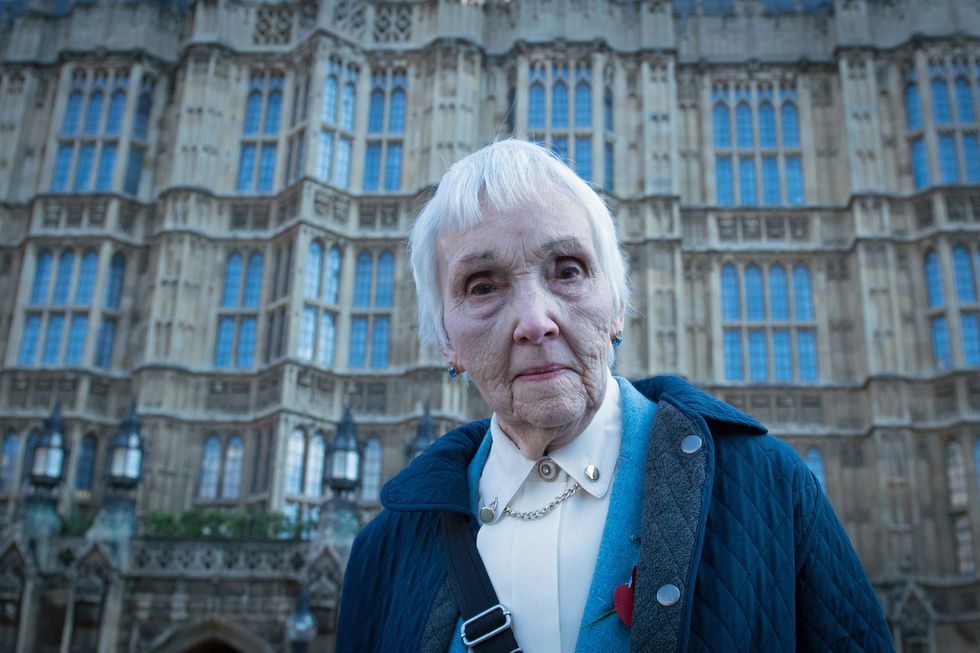Nearly half a million state pensioners are set to miss out on the state pension triple lock boost next year, which was confirmed by Chancellor Rachel Reeves in the Autumn Budget yesterday.
Under the triple lock system, the state pension will increase by 4.1 per cent next April, however thousands will miss out.
Campaigners have expressed their disappointment as the Chancellor made no mention of the 453,000 British expats whose pensions remain “frozen”.
These retirees, living in countries without reciprocal agreements with the UK, will miss out on an increase of up to £470.
Many affected pensioners receive significantly less than they would if they lived in the UK, despite having paid National Insurance contributions throughout their working lives.
The “frozen” pensions issue affects British expats living in countries without reciprocal agreements with the UK, such as Canada, Australia, and New Zealand.
 Anne Puckridge is among the estimated 500,000 pensioners living with ‘frozen’ state pensions PA
Anne Puckridge is among the estimated 500,000 pensioners living with ‘frozen’ state pensions PAThese pensioners receive an average of just £3,000 per year, compared to the full new state pension rate of £11,502 annually for 2024/2025.
The Canadian Alliance of British Pensioners (CABP) highlighted the unfairness of the current system. They noted that British pensioners in Canada receive an average weekly sum of £51.78, significantly less than the £169.50 for a basic state pension or £221.20 for a new state pension in the UK.
The government has stated that bringing frozen pensions to parity would cost £940million. However, the CABP argues this figure is “disingenuous” and that a more modest uprating would cost far less.
John Duguid, Chair of the End Frozen Pensions campaign, expressed disappointment with the Autumn Budget. He stated: “This Budget does nothing to help the nearly half a million overseas UK state pensioners consistently denied all of the annual increases in the state pension, despite paying all their National Insurance dues.”
Duguid highlighted the case of Anne Puckridge, a soon-to-be 100-year-old World War Two veteran. He said: “Anne receives only half of the current value of the UK state pension. Many more of the half a million are much worse off.”
He added: “Given the lack of help on this issue in today’s Budget, we are hopeful that the Prime Minister will be even more inclined to do the right thing and agree to meet Anne.”
Puckridge is leading the fight against frozen pensions. She receives just £72.50 per week, less than half the £169.50 she would get if she lived in the UK.
She is planning a 4,400-mile journey from Canada to lobby MPs and challenge the Prime Minister to a meeting.
She hopes to raise awareness of the nearly half a million British pensioners denied yearly increases to their UK State Pension.
Her daughter has launched an online petition to support the cause. Puckridge, who served in all three branches of the armed services, moved to Canada at 76 to be closer to her family.
Like many others, she was unaware her pension would be frozen upon moving abroad.
Under the Triple Lock increase, those on the full new state pension will see weekly payments rise by £9.10, from £221.20 to £230.30.
This amounts to an annual increase of £473.60, bringing the total to £11,975.60 for the 2025/26 financial year.
Recipients of the full basic state pension will receive a weekly boost of £6.95, from £169.50 to £176.45. Their annual payments will increase by £361.40, reaching £9,175.40.
In stark contrast, “frozen” pensioners like Puckridge continue to receive the same amount they were entitled to when they first moved abroad.